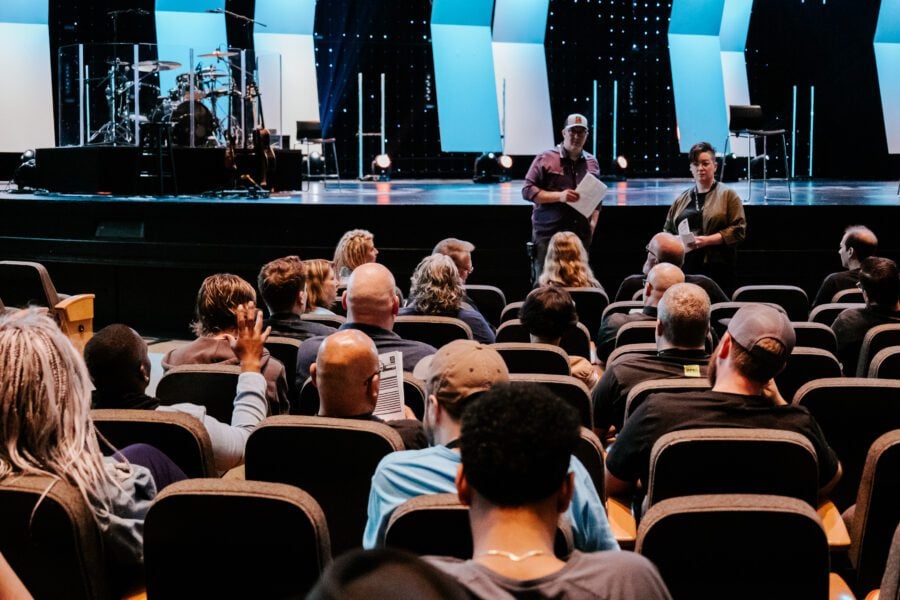
I’m no stranger to the need for a cultural reset for production teams. When I was placed at our main campus in 2019, I inherited a team that had no clear bullseye, struggled with pride, and who were like sheep without a shepherd. I was a 20-year-old female who was placed in the middle of this already established team and labeled as the new person “in charge.” Not only that, but I was learning the video world on the spot. It was the perfect storm, yet the perfect challenge to take a team and direct them to excellence.
We sat down as leadership and asked ourselves a few questions:
Do our people feel seen, loved and cared for? If not, what can we do to ensure they are valued?
Do our volunteers know our church’s mission?
Do our volunteers know how our church’s mission applies to their role in production?
Do we have a clear, unified vision/bullseye in place that our volunteers know to aim for? Or are we operating on our own personal visions?
There were a few different routes we needed to journey down to completely transform the team. One of the most important aspects of this was establishing trust with our volunteers. We realized that if we were trying to push a vision without relationship, we’d sound like dripping water. Taking interest in the lives of our volunteers opened up a variety of conversations and opportunities for deeper ministry and relationship.
The next step was taking our church’s mission and documenting how this applies to our ministry of production. We defined what we wanted a service to look and feel like, and set very tangible ways to achieve this. This then became our bullseye. Once we had all of this defined, we kicked out a short video to the team that became the foundation of our church’s production department.
Once we had our mission established, it put the responsibility on the shoulders of our volunteer team to carry the mission out, keeping each other accountable. We saw a shift in the way our team interacted after this. Our team became closer. Once we began seeking out more relationship, they did the same with each other. Pride no longer had a place to survive when the foundation of our team became the church’s mission. It became more of a team of “we” than a team of “me.”
The shift did not happen overnight. Building trust took consistency and openhandedness. We worked through conflict and lost a few volunteers in the process. However, after we made the cultural shift, we began attracting people who wanted to be a part of the greater mission. We became a team of safety, trust, excellence, and community.
What about your specific team? Do you know your church’s mission and how it applies to your role in production? What changes can you make as a teammate to make your team more about the “we” and less about the “me”?
If you are interested in hearing more from Willow Hodge about how to create a healthy team culture, check out the FILO Podcast Episode 122 “The Importance of Having a Vision”. Click here to listen!
















